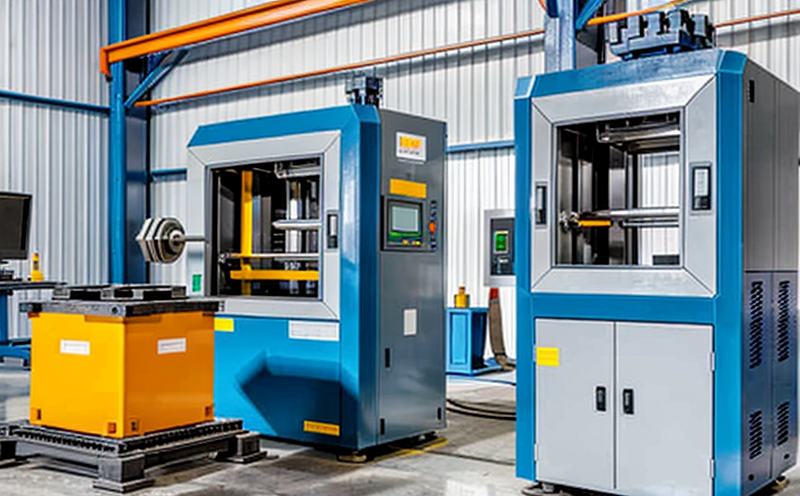Mechanical strength testing for materials used in high-stress packaging
The Crucial Role of Mechanical Strength Testing in High-Stress Packaging Ensuring Material Reliability and Product Safety
In todays fast-paced world, packaging plays a vital role in the success of any product. From pharmaceuticals to electronics, and from food to cosmetics, packaging is not just about containment; its about safeguarding the integrity of the contents within. However, with increasing demands for lighter, stronger, and more durable materials, the need for rigorous testing has become paramount. This is where Mechanical strength testing comes into play a laboratory service provided by Eurolab that ensures the reliability and safety of materials used in high-stress packaging.
What is Mechanical Strength Testing?
Mechanical strength testing, also known as mechanical testing or material testing, is a scientific procedure that evaluates the physical properties of materials under various mechanical loads. This includes tensile strength, compressive strength, flexural strength, impact resistance, and other related tests. The primary goal of these tests is to assess a materials ability to withstand stress, strain, and deformation without failing or breaking.
The Importance of Mechanical Strength Testing in High-Stress Packaging
High-stress packaging refers to products that are subjected to extreme conditions during transportation, storage, or use. Examples include
Heavy machinery components
Electronic devices with sensitive components
Pharmaceutical containers
Food packaging under extreme temperatures
In such scenarios, material failure can have catastrophic consequences, including product damage, safety risks, and costly recalls. This is where Mechanical strength testing becomes indispensable for businesses.
The Advantages of Using Mechanical Strength Testing for Materials Used in High-Stress Packaging
Here are the key benefits of incorporating Mechanical strength testing into your quality control process
Ensures Material Reliability By testing materials under various mechanical loads, you can guarantee their performance and durability in real-world conditions.
Prevents Product Failure Regular material testing helps identify potential weaknesses before they lead to product failure, reducing the risk of costly recalls and damage to your brand reputation.
Compliance with Regulations Mechanical strength testing is a critical component of regulatory compliance. By adhering to industry standards (e.g., ASTM, ISO), you can ensure that your products meet safety and performance requirements.
Cost Savings Identifying material weaknesses early on can prevent costly redesigns or retooling, reducing production costs and increasing efficiency.
Enhances Product Safety Mechanical strength testing ensures that materials used in high-stress packaging meet the highest safety standards, protecting consumers from potential harm.
Key Benefits of Eurolabs Mechanical Strength Testing Services
Here are some of the advantages of choosing Eurolab for your mechanical strength testing needs
State-of-the-Art Equipment Our laboratory is equipped with cutting-edge equipment, ensuring accurate and reliable results.
Expertise and Experience Our team consists of highly trained professionals with extensive experience in material testing.
Comprehensive Testing Services We offer a wide range of mechanical tests, including tensile strength, compressive strength, flexural strength, impact resistance, and more.
Fast Turnaround Times We understand the importance of timely results, delivering reports quickly to minimize production delays.
Flexible Sampling Options Whether you need testing for small batches or large quantities, we can accommodate your needs.
QA Frequently Asked Questions about Mechanical Strength Testing
What types of materials are typically tested using mechanical strength testing?
Most common materials include metals (alloys, steel), plastics, polymers, ceramics, and composites.
How do I determine if my product requires mechanical strength testing?
If your product is subjected to extreme conditions or has sensitive components, consult with Eurolab experts for guidance on required tests.
What are the common types of mechanical loads used in material testing?
Tensile load (stretching), compressive load (pressing), flexural load (bending), and impact load (dropping).
Can I test my materials in-house, or do I need to send them to a laboratory like Eurolab?
While some companies choose to perform internal testing, most prefer the expertise and accuracy provided by specialized laboratories like Eurolab.
How long does a typical material testing project take at Eurolab?
Turnaround times vary depending on test complexity and volume, but we strive to deliver reports within 1-14 days.
Conclusion
In conclusion, Mechanical strength testing is an essential service for businesses using materials in high-stress packaging. By ensuring the reliability and safety of your products, you can minimize risks, comply with regulations, and maintain a strong brand reputation. At Eurolab, our experienced team and state-of-the-art equipment guarantee accurate results, helping you make informed decisions about material selection and product development.
Dont let product failure compromise your businesss success. Trust Eurolab for comprehensive Mechanical strength testing services and safeguard the integrity of your products today!




